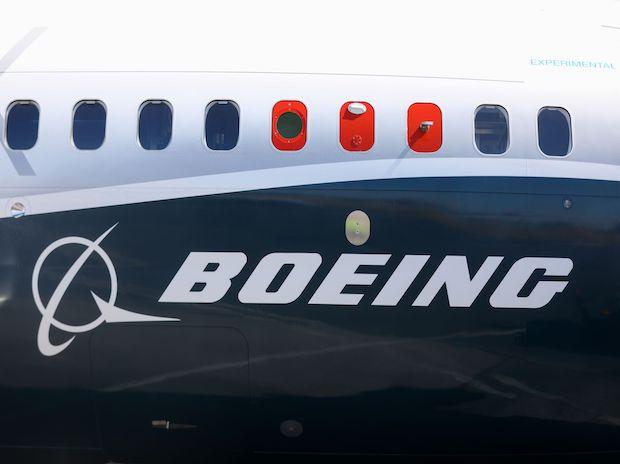Concerned about aircraft lease rates if NCLT order stands: Boeing
Aerospace giant Boeing is worried about the impact on aircraft leasing rates in India due to the recent National Corporations Law Tribunal (NCLT) order preventing lessors from repossessing their aircraft from insolvent Go First.
About 88 percent of the 673 commercial aircraft with Indian airlines were on lease as of May 3, according to data from flight analytics firm Cirium. Therefore, airlines in India pay a large portion of their revenue as rental rent.
Prior to the May 10 NCLT order, lessors had submitted applications with the Directorate General of Civil Aviation (DGCA) for the recovery of more than 40 of Go First’s 54 aircraft.
At least three lessors — SMBC Aviation Capital, SFV Aircraft Holdings and GY Aviation Lease — have filed an appeal in the National Company Law Appeals Tribunal (NCLAT) against the May 10 order.
When asked whether aircraft leasing rates to Indian airlines would increase due to NCLT demand, Ryan Ware, vice president (Sales and Marketing for India), Boeing Commercial Airplanes, told reporters on Friday: “It is probably too early to comment on the outcome. We are concerned about the outcome. What will happen with rental rates if the current order continues?
“Pushing the Cape Town Treaty through legislation is the most important thing India can do to satisfy lessors and create a framework that works. It has been shown to work in other jurisdictions. Once it is ratified, it will do the same in India. In doing so, lessors in a situation will be given more relief.” their most expensive assets in the country.”
India signed the Cape Town Convention (CTC) and Protocol, an international treaty to reduce risks to aircraft lessors and financiers, in 2008.
India introduced a bill in 2018 and a new bill in 2022 to implement the Anti-Terrorism Convention, but it has yet to be approved by Parliament.
Weir noted: “I don’t think we know what the impact will be (because of the Go First situation). It’s an unfortunate set of circumstances for airlines, lessors and the traveling public. We certainly work very closely with our clients to identify and discuss any impact of court rulings. We work with lessors to understand their perspective. also “.
About 20 percent of the commercial aircraft operating in India are built by Boeing.
Aviation watchdog group, a non-profit organisation, on Thursday placed India on a watch list with a negative outlook for its failure to de-register Go First aircraft upon termination of leases.
The AWG, which monitors CTC compliance, includes aircraft manufacturers, lessors, and financial institutions.
The AWG maintains a Compliance Index which serves as a risk assessment tool for aircraft lessors.
Go First has suspended all flights effective May 3 after filing for bankruptcy with the NCLT. The airline blamed engine maker Pratt and Whitney squarely for the cash crunch, noting that nearly half of its fleet of 54 planes had been grounded due to delays in the supply of engines.
SMBC Aviation Capital stated in its application before NCLAT that “international lessors and aircraft owners see India as a risky jurisdiction in terms of aircraft leasing.”
High fuel costs, low global air travel costs and high volumes of dollar transactions were the three biggest challenges in the Indian aviation market, said David Schulte, Boeing’s managing director of marketing for India, Southeast Asia and Asia Pacific.
Could Engine Problems Hinder India’s Air Travel Recovery?
Weir said, “I think any impact will be temporary. We have great confidence in the 737 Max’s engine partner.”
